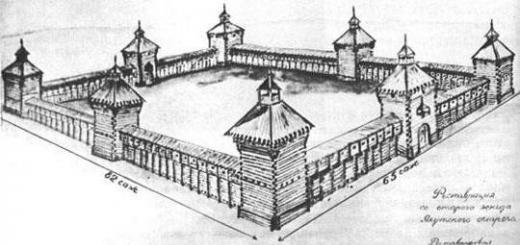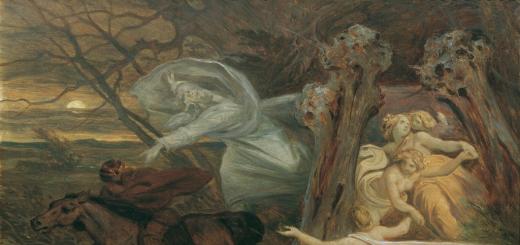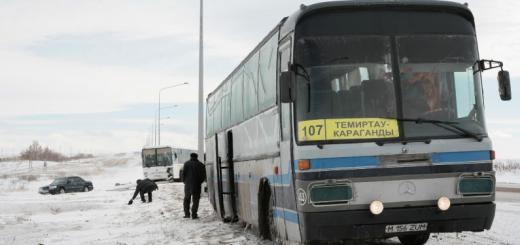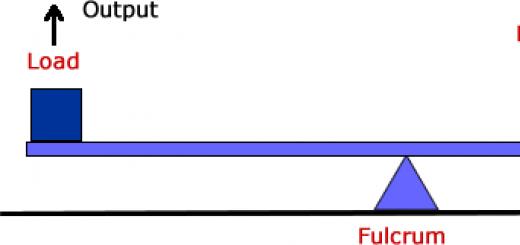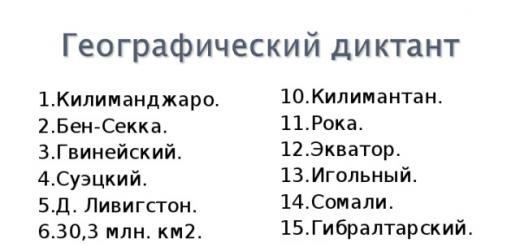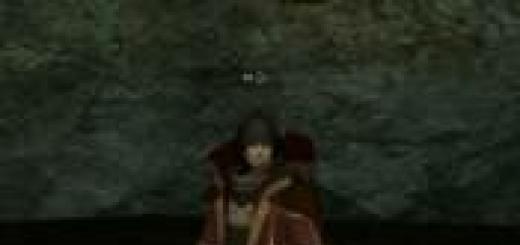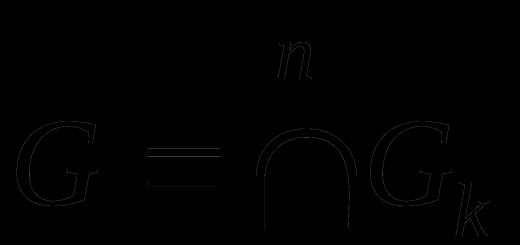In the Russian language, voiced and voiceless consonants are distinguished by the participation/non-participation of the voice in the formation of the consonant sound.
The following consonants are voiced: [b], [b'], [c], [c'], [d], [d'], [d], [d'], [g], [h], [h'], [ th'], [l], [l'], [m], [m'], [n], [n'], [p], [p'].
The sound [zh’], found in the speech of individuals in the words yeast, reins and some others, is also voiced.
The following consonants are voiceless: [ k], [k'], [p], [p'], [s], [s'], [t], [t'], [f], [f'], [x], [x '] [ts], [h'], [w], [w'].
To remember which consonants are unvoiced, there is a mnemonic rule (rule for memorization): in the phrase “Styopka, do you want a shetz?” - “Fi!” contains all voiceless consonants.
There are 11 pairs of consonants contrasted in deafness / voicedness: [b] - [p], [b'] - [p'], [v] - [f], [v'] - [f'], [g] - [k], [g'] - [k'], [d] - [t], [d'] - [t'], [z] - [s], [z'] - [s'], [g] – [w]. The listed sounds are, respectively, either voiced pairs or voiceless pairs.
The remaining consonants are characterized as unpaired. Voiced unpaired ones include [й'], [l], [l'], [m], [m'], [n], [n'], [р], [р'], and unpaired unpaired sounds include sounds [x], [x'], [ts], [h'], [w'].
But the appearance of a dull or voiced sound can be predetermined by its position in the word. Such deafness/voiceness turns out to be dependent, “forced,” and the positions in which this occurs are considered weak in deafness/voiceness.
Voiced pairs are deafened (or rather, changed to voiceless)
1) at the absolute end of the word: pond [rod];
2) in front of the deaf: booth [booth].
Voiceless paired consonants standing before voiced ones, except [v], [v'], [th'], [l], [l'], [m], [m'], [n], [n'], [р], [р'], are voiced, that is, they change to voiced: threshing [malad'ba].
Sound is the smallest unit of language pronounced with the help of the organs of the speech apparatus. Scientists have discovered that at birth, the human ear perceives all the sounds it hears. All this time, his brain sorts out unnecessary information, and by 8-10 months a person is able to distinguish sounds unique to his native language and all the nuances of pronunciation.
33 letters make up the Russian alphabet, 21 of them are consonants, but letters must be distinguished from sounds. A letter is a sign, a symbol that can be seen or written. The sound can only be heard and pronounced, and in writing it can be designated using transcription - [b], [c], [d]. They carry a certain semantic load, connecting with each other to form words.
36 consonant sounds: [b], [z], [v], [d], [g], [zh], [m], [n], [k], [l], [t], [p ], [t], [s], [sch], [f], [ts], [w], [x], [h], [b"], [z"], [v"], [ d"], [th"], [n"], [k"], [m"], [l"], [t"], [s"], [p"], [r"], [ f"], [g"], [x"].
Consonant sounds are divided into:
- soft and hard;
voiced and voiceless;
paired and unpaired.

Soft and hard consonants
The phonetics of the Russian language is significantly different from many other languages. It contains hard and soft consonants.
When pronouncing a soft sound, the tongue is pressed harder against the palate than when pronouncing a hard consonant sound, preventing the release of air. This is what distinguishes a hard and soft consonant sound from each other. In order to determine in writing whether a consonant sound is soft or hard, you should look at the letter immediately after the specific consonant.
Consonant sounds are classified as hard in the following cases:
- if letters a, o, u, e, s follow after them - [poppy], [rum], [hum], [juice], [bull];
- after them there is another consonant sound - [vors], [hail], [marriage];
- if the sound is at the end of the word - [darkness], [friend], [table].
The softness of sound is written as an apostrophe: mole - [mol’], chalk - [m’el], wicket - [kal’itka], pir - [p’ir].
It should be noted that the sounds [ш'], [й'], [ч'] are always soft, and hard consonants are only [ш], [тс], [ж].
A consonant sound will become soft if it is followed by “b” and vowels: i, e, yu, i, e. For example: gen - [g"en], flax - [l"on], disk - [d"ysk] , hatch - [l "uk", elm - [v "yaz", trill - [tr "el"].

Voiced and voiceless, paired and unpaired sounds
Based on their sonority, consonants are divided into voiced and voiceless. Voiced consonants can be sounds created with the participation of the voice: [v], [z], [zh], [b], [d], [y], [m], [d], [l], [r] , [n].
Examples: [bor], [ox], [shower], [call], [heat], [goal], [fishing], [pestilence], [nose], [genus], [swarm].
Examples: [kol], [floor], [volume], [sleep], [noise], [shch"uka], [choir], [king"], [ch"an].
Paired voiced and voiceless consonants include: [b] - [p], [zh] - [w], [g] - [x], [z] - [s]. [d] - [t], [v] - [f]. Examples: reality - dust, house - volume, year - code, vase - phase, itch - court, live - sew.
Sounds that do not form pairs: [h], [n], [ts], [x], [p], [m], [l].
Soft and hard consonants can also have a pair: [p] - [p"], [p] - [p"], [m] - [m"], [v] - [v"], [d] - [ d"], [f] - [f"], [k] - [k"], [z] - [z"], [b] - [b"], [g] - [g"], [ n] - [n"], [s] - [s"], [l] - [l"], [t] - [t"], [x] - [x"]. Examples: byl - bel, height - branch, city - cheetah, dacha - business, umbrella - zebra, skin - cedar, moon - summer, monster - place, finger - feather, ore - river, soda - sulfur, pillar - steppe, lantern - farm, mansions - hut.
Table for memorizing consonants
To clearly see and compare soft and hard consonants, the table below shows them in pairs.
Solid - before the letters A, O, U, Y, E Soft - before the letters I, E, E, Yu, I | Hard and soft consonants | |||
| b | ball | b" | battle | |
| V | howl | V" | eyelid | |
| G | garage | G" | hero | |
| d | hole | d" | tar | |
| h | ash | z" | yawn | |
| To | godfather | To" | sneakers | |
| l | vine | l" | foliage | |
| m | March | m" | month | |
| n | leg | n" | tenderness | |
| P | spider | P" | song | |
| R | height | R" | rhubarb | |
| With | salt | With" | hay | |
| T | cloud | T" | patience | |
| f | phosphorus | f" | firm | |
| X | thinness | X" | chemistry | |
| Unpaired | and | giraffe | h | miracle |
| w | screen | sch | hazel | |
| ts | target | th | felt | |
Another table will help you remember consonant sounds.
| Doubles | Voiced | Deaf |
| B | P | |
| IN | F | |
| G | TO | |
| D | T | |
| AND | Sh | |
| Z | WITH | |
| Unpaired | L, M, N, R, J | X, C, Ch, Shch |
Children's poems for better mastery of the material

There are exactly 33 letters in the Russian alphabet,
To find out how many consonants -
Subtract ten vowels
Signs - hard, soft -
It will immediately become clear:
The resulting number is exactly twenty-one.
Soft and hard consonants are very different,
But not dangerous at all.
If we pronounce it with noise, then they are deaf.
The consonant sounds proudly say:
They sound different.
Hard and soft
In fact, very light.
Remember one simple rule forever:
W, C, F - always hard,
But Ch, Shch, J are only soft,
Like a cat's paws.
And let’s soften others like this:
If we add a soft sign,
Then we get spruce, moth, salt,
What a cunning sign!
And if we add the vowels I, I, Yo, E, Yu,
We get a soft consonant.
Brother signs, soft, hard,
We don't pronounce
But to change the word,
Let's ask for their help.
The rider rides on a horse,
Con - we use it in the game.
All consonant sounds in the Russian language are divided according to several criteria, including the principle of voicedness and deafness. This pronunciation characteristic influences whether the voice is used when pronouncing a sound or not. Studying this topic is very important for understanding the basic principles of the phonetic system, because voiceless consonants are a very important part of it.
What is a voiceless consonant?
Voiceless consonant sounds are produced only by noise, without the participation of the voice. When pronouncing them, the vocal cords are completely relaxed, the larynx does not vibrate.
Paired and unpaired voiceless consonants
Most sounds that fall into this category have a voiced pair. What sounds these are, you can find out from the table “Voiceless consonant sounds in the Russian language.”
Thus, in the Russian language there are 11 voiceless consonants that have a voiced pair. But there are also unpaired ones - these are sounds such as [x], [x’], [h’] and [sch’].
They cannot become voiced regardless of position.
A special mnemonic phrase helps to remember all the voiceless consonants that exist in the Russian language: “Styopka, do you want shchetc?” - Ugh!". But it will not help to remember their pairing by hardness-softness, since voiceless consonants that have a pair are presented in it only in one variety - either hard or soft.
Consonant devoicing rule
In the Russian language, there are often cases when a voiced consonant is written in writing, but in speech it turns into a dull consonant. This happens, for example, when a voiced letter appears at the very end of a word, as in the word mushroom, the transcription of which will look like [flu].
Due to the fact that voiced consonants are deafened at the end, difficulties often arise when reproducing such words in writing. However, there is an easy way to check which letter to use: you need to change the word so that the consonant appears before the vowel, for example, mushroom - mushroom. Then it will immediately become clear what needs to be written. The same applies to cases when there is a voiceless consonant at the end, and in writing it is voiced “according to the general rule.” You can check which letter is written in the same way: krik - krik, lot - lota.
Voiced consonants located in positions at the beginning and in the middle of a word can also be deafened if they are followed by a voiceless consonant. This is easy to understand using an example: booth [booth].
What have we learned?
Voiceless consonant sounds are those sounds in the formation of which the larynx does not vibrate, that is, the voice does not participate. They consist only of noise. Most voiceless consonants have a voiced pair, but there are four unpaired sounds of this type - these are [х], [х'], [ч'] and [ш']. Due to the rule of deafening consonants during pronunciation, those consonants that are voiced in writing go into their voiceless pair. This happens if they appear at the end of a word, and also when another voiceless consonant precedes them.
1. Grammar fairy tale.
Paired and unpaired
Once upon a time, King Alphabet and Queen ABC arranged a fabulous ball to which all the letters were invited. There they split into pairs and began to dance. Vowels danced with vowels, and consonants danced with consonants. The letters A - Z, U - Yu, Y - I, E - E, O - E danced a waltz. They had fun!
The consonants also danced in pairs, but their slowness hampered them a little, and they puffed, hissed and whistled with zeal. Here are the pairs: B - P, V - F, G - K, D - T, F - W, Z - S.
Moreover, the letters B, V, G, D, Z, Z were loudly beaten with their feet to the beat of the music. These were too loud letters.
But P, F, K, T, Sh, S were deaf to music. The voiced letters cheerfully shouted out their names to the beat of the music, and the dull letters timidly whispered, like an echo, the names of their friends. What a strange couple they were.
But there were also lonely letters at the ball. They didn't want to dance at all and preferred to be alone. These are L, M, N, R, Y, X, C, Shch, b, b.
They didn't have couples. These are unpaired letters. Since then it has been like this. At holidays, paired letters dance in pairs with their partner. And the unpaired letters just sit quietly and look at the dancers.
2. Consonants, as you know, are voiced and voiceless. Some of them are so similar to each other - real “twins”; they walk, look, dress the same. But when some speak, they are heard, while others are very difficult to hear, no matter how hard they try. These are paired according to voicedness - deafness. Each of this pair has its own costume to adequately represent the sound in the alphabet.
Isn't this overkill?
No, in no case, because, among other things, they also help to distinguish words by meaning: ball - heat, stake - goal, dust - reality, fishing rod - duck, etc.
These twin letters need to be learned well, as there will still be a lot of trouble with them. In the alphabet they took up two whole floors.
The hassle is that the voiced ones are deafened at the end and you have to guess (with the help of a test word) which letter should be written. You need to change the word so that the consonant is heard clearly:
oak - oaks, eyebrow - eyebrows, eye - eyes, etc.
3. Words for spelling analysis and for commentary writing.
Fur coat, hat, snowdrift, fungi, pillar, hawk, mushroom, timid, oak, fish, strong, sheepskin coat, balls, club, bug, oak trees, sponge, soup, hazel grouse, chills, swampy, chilly, tooth, fragile, shell, bug, paw, scratches, turnip, sickle, bread, teeth, ice hole, sliver, smile, forehead, sticky, modeling, club, coat of arms, creaking, dove, armful, dove, cork.
V – F
Button, grass, cream, cow, pin, clever, healthy, watering, cheat, telegraph, floats, bench, a lot of firewood, closet, ready, giraffe, carrot, love, jacket, head, groove, beak, shoes, sleeve, prune , tree, handsome, polite.
G – K
Snow, lungs, meadow, bow, soft, claws, ravine, enemy, circle, shore, pie, boot, overnight, flag, cottage cheese, tongue, surgeon, friend, plow, cook, side, sound, god, around, tank, chilled, haystack, pillar, south, fist, squeal, iron, Thursday, fisherman, distant, wide, deep, tall, kitten, wolf cub, little pebble, fellow countryman, worm, bruise, spruce forest, glacier, sailor, oak forest, trifle, messenger, traveler, companion, worker, joker.
D–T
Beds, exercise, notebook, patch, forget-me-not, sweet, breast, labor, year, brother, boat, hike, tent, fur, camel, children, winches, scraps, steamer, entrance, riddle, old age, gait, fence, smooth, horse, city, playground, kindergarten, remains, ford, west, hail, light, expanse, view, rare, rain, mole, row, crib, crossbill, blackbird, newsboy, pilot, cat, code, scarves, factory, oil , entrance, bridge, detachment, people, bed, duck, exit, bookmark, vegetable garden, portrait, in order, honeycomb, branch, seine, wiring, short. hide and seek, shaky, bear, cobs, saucer, planting, bookmark, Medvedko, package, threads, sensitive, threshing, walking, machine gunner, find, cleaning, coin, dilapidated, berry, liquid, beard, towns.
F – W
Legs, spoons, cups, mugs, hedgehog, path, cart, rye, friends, plush, guard, landscape, pillow, porridge, pies, good, handsome, snowballs, wilderness, brooch, trembling, palm, roots, bugs, already, jumping, bags, flags, lily of the valley, earrings, russula, bear, drawing, mouse, mitten, girlfriend, report, birdie, stick, okroshka, walrus, boots, the cockerel, nuts, birdie, cone, frog, snowballs, baskets, siskin , shirt, carriage, book, horns, beach, luggage, chamomile, accordion, shavings, ears, comb, gingerbread, pencil, garage, ruff, quiet, shower, reeds, midge, playpen, quiet, pig, edge, jogging, potatoes , paper, lavash, toys, ladle, brother, top of the head, hut, kids, bunny, coward, feathers, blotter, gossip, grains, grandmother, old lady, wings, feeder, parsley, poor thing, little pole, fish, mother, freckles, kids , volushka, baby, little face, winter, baby, flatbread.
W – N
Sharp, low, Barbos, frost, elm, steam locomotive, haymaking, birch, tears, cart, narrow, taste, watermelon, cargo, sail, frozen, drizzle, hoarfrost, prankster, horror, fairy tale, Denis, knight, connection, lynx, gnaw, interest, eye, hung, down, cut, bandage, blouse, close, hint, collective farm, pointer, putty, flattery, climb, ointment, clipping, pole, ear, crucian carp, inscription, shepherd, Rus', request, painting, nose, slippery, pasture, radish, carry, crawl, sled, thread, lead, denouement, canopy, tray, nipple, pussy, bowl, disappeared, slices, voice, loader, copyist, viscous.
4. Find paired consonants in proverbs.
There is honey - go into the hive.
Pick one berry at a time and you'll get a box.
To eat a fish, you need to get into the water.
The tail is not a guide to the head.
Bread is the head of everything.
Bread is father, water is mother.
Small spool but precious.
According to Senka and the hat.
One with a bipod, and seven with a spoon.
There is honey on the tongue, and ice on the heart.
An old friend is better than two new ones.
The snow is deep - the year is good.
Grandma with porridge, and grandfather with a spoon.
The sweetest of all fruits is the fruit of honest labor.
Your eye is a diamond.
More precious than a diamond are your two eyes.
It's not the fur coat that warms you, but the bread.
5. For these nouns, select nouns with the suffix –ochk-.
La...ka - _________, blue...ka - _____________,
tetra...ka - ___________, faith...ka - ____________,
about...ka - ____________, re...ka - ______________.
6. Choose antonym adjectives for these adjectives.
Thick - ________________, tall - __________________,
Distant ________________, bitter - ___________________.
7. Choose nouns with voiced and voiceless consonants in the middle of the word that are suitable in meaning for the sentences.
The blizzard sweeps __________________________________________.
The students in the class made _____________________________ for the books.
8. Insert the missing consonant into the word, write down the test word.
Oshi...ka, _________________ - cook...ka,
Buma...ka, __________________ - no...ka,
Bese...ka, ___________________ - scream...ka,
Ska...ka, ___________________ - village...ka,
About...ba, ___________________ - I'll lie down...ka.
9. Make a sentence with words from each line.
Mouse, cat, eyes, paws.
Friendship, books and notebooks,
Fur coat, hat and boots,
And the birch tree and the earrings.
10. Fill in the missing letters.
Snow...ki, jump...ki, fl...ki, caps...ki, nuts...ki.
11. Choose the right words.
What is the name of the hut where the watchman lives?
Decoration in the ears.
Solid clasp on the belt.
Part of a table or chair.
12. Transformation of words.
Change one letter in the words. Select a test item for each and write it down.
Forest - (lion), god - (dog), fairy tale - (pointer), spoon - (boat), turnip - (sliver), circle - (friend), bread - (shed), peck - (beak), boat - (hat).
13. Chain of words.
Each new word must begin with the letter
ends with the previous one, and ends with a paired bell or unvoiced
consonant.
Cold - ... (grandfather - dog - gas - tooth - ford - ...).
Bus – (trace – friend – year – thrush – debt – hail - …)
Frost - (tooth - luggage - beetle - cube - ...)
14. Underline the consonant in the words, the pronunciation of which differs from
spelling.
Flag, squad, house, cold, ruler, ice, chalk, hike, frost, table, flower,
soup, book, glass.
15. Underline the paired voiced and voiceless consonants in the words.
Hammer is young, sickle is a coat of arms, a cart is a nose, a pond is a rod, a mouth is a rod, a raft is a fruit,
frost - grown, tooth soup.
16. Add the consonants.
Sugro..., zavo..., this..., moro..., hand... .
17. Underline the voiced and voiceless consonants in the words and add them to them
test words.
Notebook, notebook, little book,
iron-_________, mushrooms-_________,
pie-________, oak trees-__________,
watchman-_______, narrow-__________.
18. Emphasize the voiced consonants in the words.
Car, oak trees, berry, leg, banner, metro, axe, sea, Saturday,
summer, modeling.
19. For these words from the first column, match the meaning of the words from
second column. Make sentences with them.
the wind my...kaya
bunny
ice river
the road is cr...ky
pillow ro...ky
20. Underline the voiceless consonants in the words.
Lilac, axe, furniture, bread, bug, peas, circus, people, book, clock, ruler, sheep.
21.Insert the missing words with paired consonants.
The student did three ____________ in the dictation.
Golden _____________ live in the aquarium.
A narrow ___________ led to the forest.
The watchman lives in ____________.
There was a dilapidated _________ near the river bank.
In the den hall... brown _____________.
22. Emphasize paired unvoiced and voiced consonants in the middle of words
Cat - spoon, toy-track,
stroller-headband, snowballs-giggles,
fur coat-hat, mowing-carving.
23. Write the verbs in the past tense.
Gets off - ___________, gets cold - ______________,
will freeze - ________, disappear - _____________,
will crawl -________, bite off -______________.
24. From a poetic passage, first write down all the voiced consonants, and
then - deaf.
The autumn wind rises in the forests,
It's noisy more often.
Dead leaves are torn off and having fun
Carries in a mad dance. (I. Bunin)
25. Mistakes.
What words does Andrey confuse? Will the sentences in his recording be clear?
In class they take dictation:
“I brought a mushroom from the forest.”
Only Andrey deftly deduces:
“I brought the flu from the forest.”
Well, tell me why?
The players own the bass
And the singer with an enviable pass,
Fruits float down the river,
And there are rafts growing in the garden.
Explain why
Is he unlucky at school?
26. Find all the spellings and explain their spelling.
Behind the village there is a meadow,
And in the garden there are onions.
And along the river there is a raft,
And on the pear there is fruit.
27. Read the poem by F.I. Tyutchev.
The earth still looks sad, Nature has not yet woken up,
And in the spring the air breathes, But through thinning sleep
And the dead stem in the field sways, She heard spring
And the oil branches move. And she involuntarily smiled.
1) Count how many voiceless consonants are in each line.
2) Find the most “voiced” line (that is, the one with the most voiceless consonants) and the most “sonorous” (with the most voiced consonants). Read them out loud again.
3) Think about how the content of these lines is related to the number of voiceless consonants?
28. Imagine that you are in your kitchen. Wow, so many different ones here
items! I show you an object, and you name it and
choose a test word for the named word.
These words are: cup, spoon, mug, spatula, frying pan, mitten -
potholder, napkin.
29. Pick up the correct card (V-F, G-N, D-T).
The stork makes a dawn...ku - The Pelican dives lo...ko.
Now skipping, now squatting... That's what training means!
Octopus... put on gloves... Rak in the hall... on a scooter,
And the seal ran away from the area. Everything is forward... and he is back... .
30. Write the words: de..., pr..., glue..., ry...ka, er.... Compose the text according to
these supporting words. Try calling the controller for help -
vowel and determine the correct spelling. What words did you check?
changing the word, and to which one did they select a related word?
Unpronounceable consonants
Sometimes consonants
They play hide and seek with us.
They are not pronounced
But they are written in a notebook.
Sometimes they appear in words
Terrible consonants.
They are not pronounced
And what to write is not clear to you...
To know how to write, Not wonderful, not wonderful,
It is necessary to change the word, but it is terrible and dangerous
And it’s in vain to write the letter T behind an incomprehensible sound.
Quickly look for the vowel. Everyone knows how lovely it is
It is appropriate to write the letter T.
1. Conversation about unpronounceable consonants.
Not all consonants in words are pronounced; some of them disappear, hide. If a word with an unpronounceable consonant cannot be verified, you should remember its spelling.
Why do sounds still disappear?
The fact is that three consonants in a row can be very difficult to pronounce, so we simplify their pronunciation in this way. But writing them cannot be simplified. There are unpronounceable consonants for a reason. They have their own history. For example, why do we write the letter t in the word staircase? In the Old Russian language there was a word lstvitsa. So it turned into a staircase under the influence of such words as sugar bowl, inkwell. As for the word itself, it is formed from the verb climb, climb, with the help of the suffix -tv(a).
This means that the unpronounceable t in the noun staircase is the remainder of the suffix -tv(a).
2. Words for spelling analysis and for commentary writing.
In some words, the letters D, T, V, L are not pronounced, but are written.
To check an unpronounceable consonant, you need to select
a word with the same root so that this consonant is clearly heard.
Some words cannot be verified. Remember: feeling, stairs.
D – starry, late, holiday, heart.
T - valiant, sad, bone, oral, stairs, neighborhood, area, whistled, famous, charming, furious, honest, happy, messenger, reed, cabbage, stormy, joyful, private,
Gigantic, regional, imperious, serf.
B – feeling, hello.
L – sun.
Combination sn - zn.
CH - wonderful, beautiful, terrible, dangerous, in vain, tasty, interesting, cramped, insipid, heavenly, sailing, consonant, voiceless, wordless.
ZN - ugly, amiable, iron, collective farm, serious, diamond.
3. Find and write down words with unpronounceable consonants. Near
write down the test words.
a) Valiant, ladder, leaf, kind, whistled, reed, briefcase,
cloud, messenger, window, hello.
b) Health, sun, leaf, heart, starry, book, friend, famous,
joyful, neighborhood, column, furious, honest, holiday,
lovely.
4. Write down the words denoting the characteristics of objects. Paste
missing letters. Write down the words for the objects next to them.
Well-known (who?) ... . Festive (what?) ... .
Sad... (what?) ... . Starry (what?) ... .
Cabbage…ny (what?)… . Honestly (who?) ... .
5. Copy the text by inserting the missing letters
Old... it m... pink p... years. Frost filled the birch trees in the forest, ...sinkies,
old ol...hu. The l...sleepy p...lana came to life. Adjacent bullfinches and titmice. Under the spruce tree the hare buried itself in its sleep...
Suddenly there was a rustling sound through the forest, and a drift of snow began to flow. It became l...su t...a lot. Nal...tel wind. D...reveys...swayed. The snowdrifts fell from the spruce la... . Snow... sprinkled. Started in... the south.
The sun... brightened up the surroundings. A dry branch crunched... in a dream, a beautiful bird shed... the body. A shepherd drives his flock to pasture.
The dream... fell out... but. These are sad days. Everyone is waiting for a happy holiday.
6. Form adjectives from nouns.
Joy - ____________________,
bad weather - ___________________,
happiness - ____________________,
star - ______________________,
whistle - ______________________,
lovely - ___________________.
7. Make sentences from these words and write them down. Paste
missing letters.
It’s difficult to find out our place in winter.
Covered, carpeted, snowy, everything.
It's bad weather, it's standing.
The wind is blowing, furious, cold.
Look at the trees, sad...but, naked.
8. Identify unpronounceable and ambiguous words by ear
consonants and select test words for them.
Frost and sun, wonderful day!
You are still dozing, dear friend.
The blood plays easily and joyfully in the heart,
Desires are boiling - I’m happy and young again!
Three maidens by the window
Spinning late in the evening...
“Hello, my handsome prince!
Why are you as quiet as a stormy day?..”
9. Read the poem expressively, explain all spellings, and
then try to write from memory any four that you remember
The sun looks from the sky, but the sun will shine
Millions of years. And he walks away.
The sun is pouring on the earth and a living heart
And warmth and light. It warms day and night.
So the heart is better
the sun itself,
No clouds
They won't overshadow him!
10. Riddles. Write answers with test words
The carpet is spread out, Day and night it knocks,
The peas are scattered: As if it were a routine thing.
You can’t lift a carpet, It will be bad if suddenly
Not a pea to pick. This knocking will stop.
(Starry sky) (Heart)
Come on, which one of you will answer?
It's not fire, but it burns painfully.
Not a lantern, but shining brightly,
And not a baker, but a baker? (Sun)
11. From the words given in brackets, form the adjectives obtained
write the phrases.
Day (holiday); evening (late); morning (bad weather); smile (joy);
deed (honor); labor (valor); life (happiness); look (sadness).
12.Complete the proverbs with words with unpronounceable consonants.
Hands work - soul... .
Not in power... but in truth.
In the big... and the distant is close.
... labor is our wealth.
...they don't watch the clock.
Words for reference: happy, honest, heart, holiday, honesty.
13. Copy, replacing the highlighted words with synonyms with unpronounceable words
consonant.
Related information.
In the elementary grades, the basis of a person’s spelling literacy is formed.
Everyone knows that the difficulty of the Russian language is largely due to the discrepancy between spelling and pronunciation. This is often associated with paired consonants.
What is a paired consonant?
All consonants are in one opposition or another with each other according to their characteristic features. One of them is the contrast between sounds based on deafness and voicedness.
Some consonants, while all other features coincide, such as the place of formation and the method of pronunciation, differ only in the participation of the voice in the sound process. They are called pairs. The remaining consonants do not have a voiceless-voiced pair: l, m, x, ts, ch, shch, y.
Paired consonants | examples of words with paired consonants |
|
tables[b]s - table[p] |
||
draw[v]a - draw[f] |
||
doro[g]a - doro[k] |
||
boro[d]a - boro[t]ka |
||
blah[zh]it - blah[sh] |
||
frosty[z]ny - frosty[s] |
||
Paired consonants are given here. The table also contains examples that illustrate the spelling “Verified consonants in the root of a word.”
Spelling rule for paired consonants
During pronunciation, paired sounds can be interchangeable. But this process is not reflected in writing. That is, the letters do not change, no matter what sounds we hear in their place. This is how the principle of uniformity of morphemes is implemented in the Russian language. The spelling of paired consonants is completely subject to this law.

The rule can be stated in the following paragraphs:
- the root of the word is always written the same way, since semantics depends on this;
- spelling needs to be checked by selecting or changing word forms;
- You must select as a test one the one that has either a vowel sound or a sonorant sound after the dubious consonant (р,л,м,н,й).
This can be seen in the examples from the table: consonant spellings appear either at the end of words or before other paired sounds. In test words they are located before vowels or before phonemes that are unpaired in voicing.
Application of the rule
The spelling of paired consonants needs to be practiced. You need to start by developing the ability to see the spelling pattern being studied. This will be the end of a word or a combination of consonants, in which sounds begin to influence the sound of each other - the subsequent one changes the quality of the pronunciation of the previous one.

When we know what a paired consonant is, it is not difficult to draw a conclusion about which option to choose:
- bo[p] - beans - bean;
- bro [t] - broda - ford;
- bro[f"] - eyebrows - eyebrow;
- nail[t"] - nails - nail;
- vegetable garden [t] - vegetable gardens - vegetable garden;
- dro [sh] - trembling - trembling;
- stripe [s]ka - stripe - stripe;
- ko[z"]ba - mow - mowing;
- re[z"]ba - cut - carving;
- goro[d"]ba - fence - gorodba;
- kro[v"] - blood - blood;
- str[sh] - guard - guard.
Paired consonants. Examples of differentiating words
Deafness and voicedness are able to distinguish words by meaning. For example:
- (soup) thick - (above the river) bush;
- (telegraph) pole - (Alexandria) pillar;
- bark (oak) - (high) mountain;
- (unbearable) heat - (surface) of the ball;
- (bouquet) of roses - (boy) grew up;
- (new) house - (thick) volume.

In weak positions, at the end of words, for example, as in the example of “roses” and “ros”, verification is required to avoid semantic confusion. Paired consonants in Russian require careful attention.
Test on the topic studied
grass[..]ka, fish[..]ka, zu[..]ki, arbu[..], lo[..]ka, kor[..]ka, ko[..]ti.
Fabulous - fairy tale, head - head, pie - pies, ditch - groove, birch - birch, eyes - eyes, stripe - stripes, notebook - notebook, spikelet - spikelets, jump - jumping
6. F or W?
Boots...ki, doro...ki, bum...ki, cro...ki, ro...ki, vice..ki, bara...ki, lo...ki, game...ki, cha...ki, lie down...ki.
- g...ki (__________);
- fl...ki (__________);
- gr... (__________);
- gla... (__________);
- jump...ki (____________);
- lo...ka (____________);
- horse (______________);
- zu.. (_______).
Sha(p/b)ka, provo(d/t), kru(g/k), povya(s/z)ka, myo(d/t), su(d/t), sla(d/t) cue, oshi(b/p)ka, doba(v/f)ka, uka(z/s)ka.

9. Insert letters in the text:
Swan is the king of all waterfowl. He is, like a dream..., white, graceful, he has shiny eyes, black varnishes and a long, flexible neck. How beautifully he floats on the smooth water of the pond!
10. Correct errors:
- I love reading stories.
- How fragrant the strawberries are!
- Carrots are sown on the beds.
- A flexible birch tree flutters its petals in the wind.
- The tray floated on the lake.
- Berek is gradually approaching.
- Storosh is not sleeping.
- A mongrel rattles loudly in the yard.
- Yosh rustles in the bushes.
Answers
1. What is a paired consonant? A consonant that has a pair of deafness or voicedness.
2. Complete the sentence:
To check paired consonants, you need choose a test word.
3. Highlight the words that need checking:
immer..ka, underwater... smooth, smart... horse, careful..prepare, du..ki, l o...ki, other..ny.
4. Write the sounds in square brackets:
grass[V]ka, lo[D]ka, zu[B]ki, arbu[Z], lo[D]ka, koro[B]ka, ko[G]ti.
5. Underline the test word:
Fabulous - fairy tale, head - head, pie - pies, ditch - ditch, birch - birch, eyes - eyes, stripe - stripes, notebook - notebook, spikelet - spikelets, bounce- jumping
6. F or W?
Boots, paths, pieces of paper, crumbs, horns, powders, lambs, spoons, toys, cups, frogs.
7. Write down the test words and insert letters instead of dots:
- beeps(beep);
- checkboxes(checkbox);
- griB (mushrooms);
- glaZ (eyes);
- jumping (jump);
- boat (boat);
- horse(horses);
- tooth teeth).
8. Choose the correct option:
Hat, wire, circle, bandage, honey, court, sweet, mistake, additive, pointer.
9. Insert letters in the text:
The swan is the king of all waterfowl. He is like snow, white, graceful, he has sparkling eyes, black paws and a long flexible neck. How beautifully he floats on the smooth water of the pond!
10. Correct errors:
- I love reading fairy tales.
- How fragrant the strawberries are!
- Carrots are sown in the beds.
- A flexible birch tree flutters its petals in the wind.
- The boat was sailing on the lake.
- The coastline is gradually approaching.
- The watchman is not sleeping.
- A mongrel barks loudly in the yard.
- The hedgehog rustles in the bushes.

